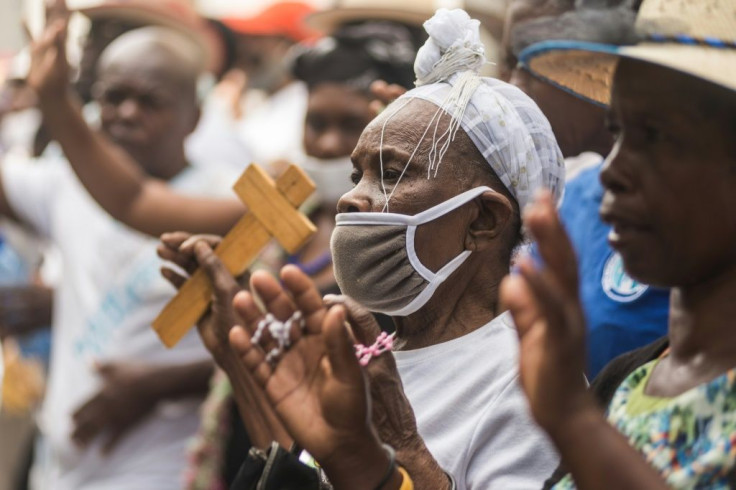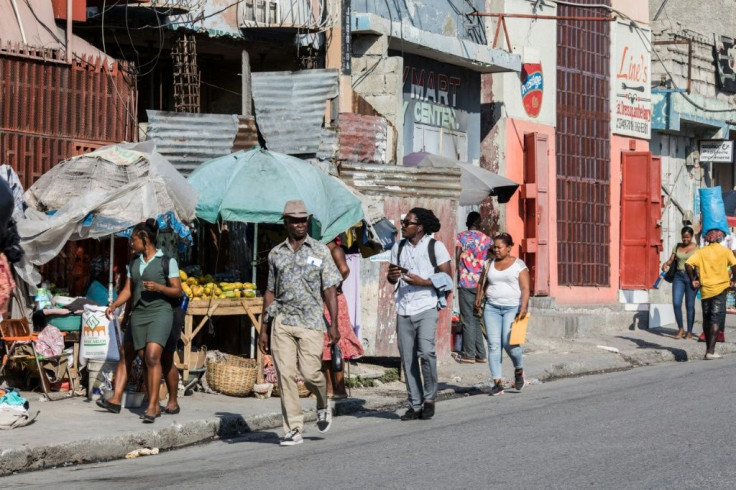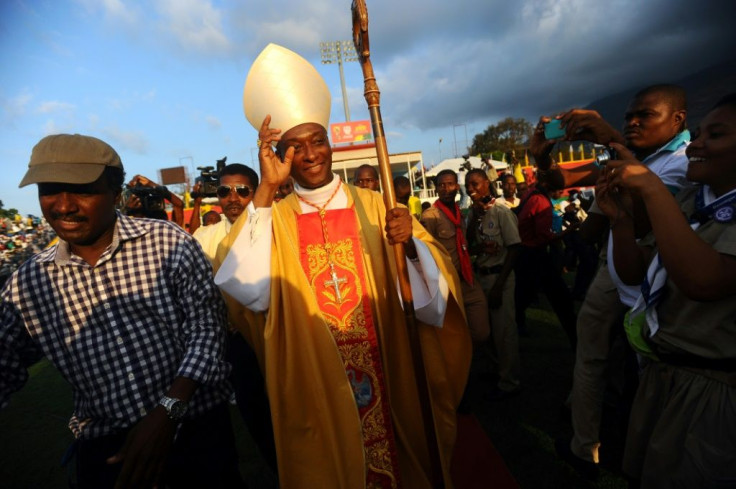Haiti's Catholic Church Begins Speaking Out Amid Swirling Crises
Might the Catholic Church help chart a way out of the multiple crises facing Haiti?
By openly criticizing governmental "inaction" and demonstrating last week its capacity for wide-scale mobilization, the church has made clear it plans to take a more direct role in addressing the daunting challenges facing this small Caribbean island.
Haiti, the poorest country in the Americas, is grappling with multiple crises including out-of-control gang violence and months of political instability.
In recent days, Haiti's Catholic Church has found itself thrust into the spotlight over the still-unresolved abduction of 10 people, including seven Catholic clergy.

The shocking kidnapping on April 11 sent shock waves across the island and beyond.
It was the final straw for many increasingly exasperated Haitians, forcing Jovenel Moise, the country's widely criticized president, to announce on Wednesday a reshuffling of the government.
"The Catholic Church can help bring about change. The country needs it," said Andre Michel, a member of the opposition.

Catholicism is the dominant religion in Haiti.
The church "enjoys great confidence among the majority of the population," said Haitian Cardinal Chibly Langlois, in an exclusive interview with AFP a few days after Moise named Claude Joseph as the new prime minister.
In difficult moments, the cardinal said, people expect "a word from the Catholic Church," as it stands with them "in the most abandoned and remote parts of the country."
Denouncing the "impotence" of the authorities in the face of a troubling spike in kidnappings, Langlois said an effective means had to be found to "stem this crisis."
While emphasizing that church officials are "not in a position for now to play the role of mediator," Langlois -- the first Haitian cardinal -- said he was weighing "other means to help find a solution to a crisis that has gone on too long."

In 2014, at a time of high tension, the cardinal took part in talks between the executive branch and political parties.
On Thursday, the church, joined by many businesses and schools, observed a work stoppage to demand the liberation of the hostages -- among them five Haitian clergy members, and a French priest and a nun -- bringing economic activity to a standstill.
Catholic masses have quickly been transformed into a protest movement against the authorities.
By launching this national movement, the Catholic Church has proved "its importance in a country with a strong religious tradition," said Reginald Boulos, a businessman and political figure who sees the church as "a moral force."
On Monday, the archdiocese of Port-au-Prince issued a statement deploring "the descent into hell of Haitian society" and denouncing as unprecedented the "violence of armed gangs."
It added that the "public authorities" were not "immune from suspicion."
This more direct approach by Catholic officials "may offer some hope of resolving this crisis," said sociologist Auguste D'Meza. But he added that the church alone "is not strong enough to play an important role in this transition."
The church hierarchy in Haiti has long been dominated by French priests. In the 1950s they engaged in a power struggle with Haiti's former "president for life," Francois Duvalier.
"Papa Doc" Duvalier had revived the island's voodoo traditions as part of a fierce assault on Haitian Catholicism, finally obtaining from the Vatican the power to name the Catholic hierarchy, helping to consolidate his authoritarian regime.
That opened an era of church subordination to the state, which continued during the reign of his son, Jean-Claude Duvalier, known as "Baby Doc."
But under Pope John-Paul II, the Catholic Church sided with the forces of change that eventually led to the downfall of the Duvalier dynasty.
So with its recent criticism, the church has returned to the more forthcoming attitude of the early 1980s, D'Meza said.
© Copyright AFP 2024. All rights reserved.





















